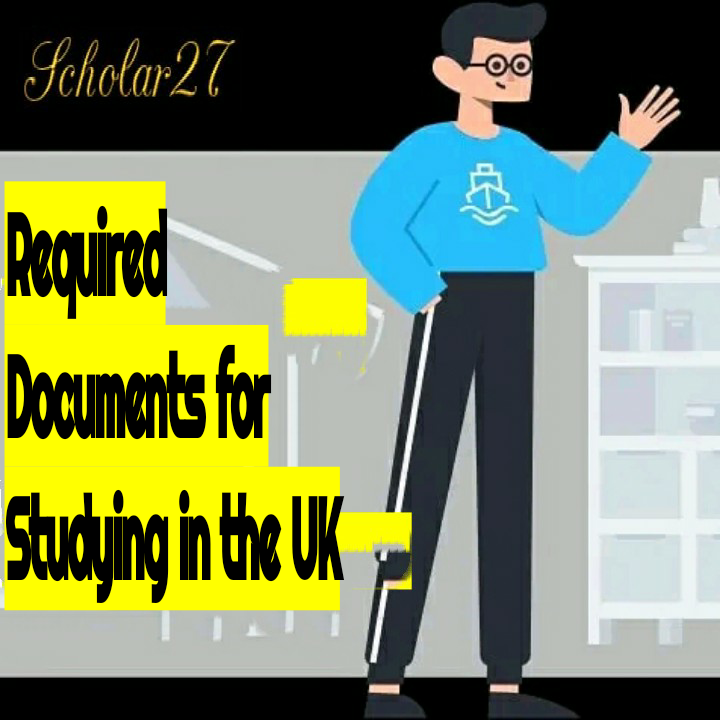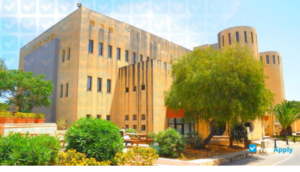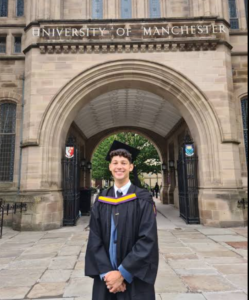
Required Documents for Studying in the UK
When making your Scholarship application to Universities in the UK, you will need to submit some specific documents to prove that you meet the criteria.
The documents you need to provide with your Scholarship application depend on the scholarship in question. Some documents are mandatory and others need to be provided depending on your circumstances and what your school says.
What you will find in common throughout all courses and schools is that you will need to show competency in the English language.
Although this post will provide you with some useful information with which to arm yourself about what is needed to gain entry into UK courses, you should inquire specifically to any course that you are considering.
The following list should help you to work out what documents you will need to provide. It’s important to provide all of the documents needed, as not doing so can cause a refusal.
- Undergraduate Studies
International passport.
Original WAEC or GCE certificate
Depending on what program you are looking at, the entry requirements will vary for international students. Most degree programs in the UK will require that the student have passed either A-levels and attained certain grades, for example 4 B grades, or equivalent grades in a BTEC or GNVQ. So within a university different courses will have different requirements and universities as a whole may have certain requirements that all students will have to meet. For example, the Universities of Oxford and Cambridge generally require all students to attend an interview, other universities will not require this.
English test (if the university requires it).
For most schools and courses, your level of understanding and competency in English will be key to your acceptance in a major program such as a degree program. You will need to make sure you have a good level of English understanding and you can do this by taking one of the following commonly accepted tests of English ability:
- TOEFL – Test of English as a Foreign Language
- IELTS – International English Language Testing System
- UCLES – University of Cambridge Local Examinations Syndicate.
_
- Original Birth certificate.
- Personal statement.
- Academic and character reference.
- Police report (for medical courses).
2. PostGraduate Studies:
- International passport.
- Original University transcript,
- Certificate and Statement of result.
- A level Results (Original WAEC, NECO or GCE certificate)
English test (if the university requires it).
For most schools and courses, your level of understanding and competency in English will be key to your acceptance in a major program such as a degree program. You will need to make sure you have a good level of English understanding and you can do this by taking one of the following commonly accepted tests of English ability:
- TOEFL – Test of English as a Foreign Language
- IELTS – International English Language Testing System
- UCLES – University of Cambridge Local Examinations Syndicate.
_
- Original Birth certificate.
- Personal statement.
- Academic and character reference.
- Court Affidavit to correct any mistakes on your certificates.
- Police report (for medical courses).
And of course, you will need a Student visa (for both Undergraduate & PostGraduate Studies). Depending on the university you are applying to, you may only need to provide these documents to them and they will sort out the bills (that is once your Scholarship application is accepted).
So the documents you need to provide with your visa application depend on your circumstances. Some documents are mandatory and others need to be provided depending on what your CAS says.
A CAS is an electronic statement which includes information about you and your programme, and contains your unique ‘CAS number’. The university will send your CAS statement to you by email, once you have met the requirements for it to be issued.
Your CAS contains information about your studies. You will need this information to complete your visa application form. You cannot make a Student Visa application without a CAS.
By issuing you with a CAS, the university is agreeing to act as your Student Visa Sponsor.
It’s important to provide all of the documents needed, as not doing so can cause a visa refusal.
Student Visa document list
Passport
A current passport or other valid travel documentation.
Qualifications stated on your CAS.
All qualifications listed in your CAS. You should note that if no qualifications are listed in your CAS, you are not required to provide any.
English language evidence.
UKVI ask for proof of your knowledge of the English language. Universities can choose how they assess a student’s knowledge of English. Your CAS will confirm how your English language ability has been assessed by the university. If it has been assessed by you providing a certificate or qualification, then this will be listed in your CAS and you must provide the certificate listed. If no English language qualifications are listed in your CAS, then you will not need to provide any with your application.
Translations.
If any document is not in English, the original must be accompanied by a full translation. The translation must contain:
- Validation from the translator that it is an exact translation of the original document
- Translation company’s contact details
- The date of the translation
Proof of finances.
You need to provide evidence that you have a specific amount of money available to you for tuition fees and living costs in the UK.
The types of document you can provide to prove your finances are:
- Personal bank statements or building society statements
- Bank letters
- Official loan letters
- Official financial sponsorship letters
Please note that it is important to provide finance documents which meet the requirements, to avoid a visa refusal.
Letter of consent from government sponsor.
If you have received any official financial sponsorship from a government in the past year, you must provide a letter from this sponsor which confirms the sponsor’s consent for you to make the Student Visa application.
Proof of your relationship with your parent or guardian.
If the funds you show are held under a parent’s name, you must prove your relationship to your parent(s). Birth certificates or adoption certificates are accepted.
Letter from parent/ guardian.
If the funds are held under a parent’s name, you also need a letter from your parent(s) or legal guardian(s) providing consent for you to use the money. The letter does not need to follow a strict format, but it must be signed and dated.
Proof of parental or other legal guardian consent if you’re under 18.
If you are under the age of 18 when you start your studies, you will need to provide a letter from your parent(s) or legal guardian(s) and also your birth certificate or adoption certificate.
Your tuberculosis test results
If you’re from a country where you have to take the test. Note that if you have been living in a country for the past six months where the TB test is not required, then you will not need to provide this (If you have been living in the UK for six or more months, then you will not need to take a TB test.) See the UKVI information on TB tests to check if this applies to you.
ATAS Certificate (Academic Technology Approval Scheme certificate).
This is a certificate required by some postgraduate students. (It does not apply to students on undergraduate programmes of study.) You should note that it takes approximately one month for an ATAS certificate to be issued. Your CAS will confirm if you need an ATAS certificate.
Police Registration Certificate
If you are applying from the UK, you will need your police registration certificate, if you are required to register with the police
Confirmation of Acceptance of Studies (CAS)
This is the electronic document that you will receive from the university via email, which is essential to making your Student Visa application. You should note that as the CAS is electronic, you only need to provide the CAS reference number in your visa application form and there is no requirement to provide a paper copy.
- Differentiation arrangements
If you are a national of a country listed under the differential evidence requirement, you do not need to provide qualifications or finance evidence with your visa application.
However, you may still need to have these documents available, because UKVI reserves the right to ask you to send them the documentary evidence during the processing of the visa application. If you are asked to provide the documents and cannot do so within a specified time, it is likely that your visa application will be refused.
Whether you fall under the differentiation arrangements or not depends on your nationality. You can find a list of nationalities that fall under the differentiation arrangements in the gov.uk information on financial evidence for a Student Visa application.
_
Credits to University of Greenwich & International Student for resource materials.

















Post Comment